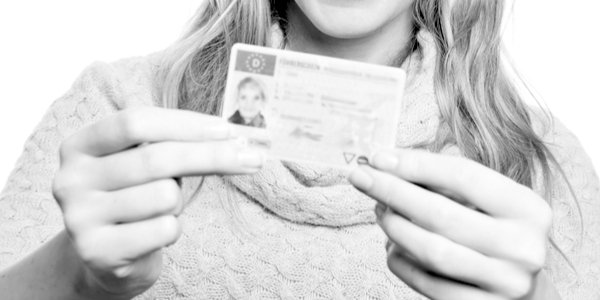IMAGINE the scene: my daughter runs a cross-country race and comes first for her age group, but the organisers disqualify her, because her digital identity had not been submitted. Imagine another scene: you’ve got tickets for a football match or a night at the opera, but on arrival you are turned away for not having your national proof of identity. And one more scene: you successfully apply for a job, supported by good references, and on the first day you are sent home by HR. The company cannot employ someone who might not have a right to be in the country, and offering to show your birth certificate, driving licence or passport is futile.
This, as Neil Oliver remarked, is the ‘fresh hell’ fast coming our way. No government announcement has been made yet, but there is imminence and inevitability to this encroachment on our erstwhile status as free citizens.
The UK is actually years behind other countries in introducing a digital identity system that is effectively (if not legally) mandatory. Five years ago, one of my PhD students proudly showed me his ‘digital wallet’ on his smartphone, containing his driving licence, health data (including vaccinations), bank account, tax records and travel documents. He was from Saudi Arabia, a country that has taken great strides towards the Great Reset. Without your digital identity, you cannot do anything in Riyadh.
Tony Blair, the great modernist, is cracking the whip at the Labour administration, urging acceleration toward the brave new digital world. His fingerprints are all over the sudden rush of political and media figures to embrace digital identity. Polly Toynbee, in the Guardian, urged Labour to introduce it now, as a political weapon against Nigel Farage’s Reform party. Comments below were mostly supportive – hey, what’s not to like about something so progressively European (1930s Germany, perhaps?). In response to a comment warning of authoritarianism, a naïve Guardianista wrote ‘would you care to elaborate a scenario as to HOW a digital ID card might help the government to control the population?’
David Blunkett was pushing digital identity in last weekend’s Mail on Sunday, following a previous Mail column of last year in which he argued that the illegal cross-Channel influx would stop if we accepted digital identity for everyone. Reading lines like this from a former Home Secretary, you might suspect that the whole ‘small boats’ fiasco is a ‘problem-reaction-solution’ mechanism to get us to feel the need for digital surveillance.
Recent missives were timed for the release of the report BritCard: a Progressive Digital Identity for Britainby the think-tank Labour Together. More on this and the authors later, but first let us look at the proposed identity card. The name of ‘BritCard’ is probably to appeal to patriotic folk, with the ‘card’ part suggesting a physical piece of plastic, but for all but a few holdouts it would be a digital application on your smartphone.
The report claims, like Blunkett, that digital identity will control illegal immigration, that it will be highly convenient, and that surveys (conducted by Labour Together) show that the general public approves. The first use of the card, as recommended by the authors, would be to check identity for all new employment contracts and rental agreements. Already, this would make BritCard essential if you want to change job or tenancy.
The scheme would be introduced by stealth. First, it is optional for employers or landlords, then it is standard practice (whereby failure to check BritCards could invalidate insurance), and then it is mandatory. The scope steadily expands to other activities. In a scene in The Agenda: Their Vision, Your Future, the latest Oracle film, a person walks freely around a city, but cannot access anything. The digital prison has no walls, until you try to enter a building or buy something without your identity.
The language of the report is that of liberal tyranny. For example, the authors assert that ‘for a progressive society to work, it needs to be able to collectively agree who is allowed to join it.’ Gosh – does that mean we could be ‘unpersoned’ for having the wrong opinions? BritCard would be ‘mandatory, universal and free of charge’, but as Kit Knightly remarked on OffGuardian, ‘you can’t make a smartphone app mandatory without making smartphones themselves mandatory.’
Labour Together is a lavishly funded body, founded by Blairite MPs and staffed by former members of Tony Blair’s cabinet. It is aiding and abetting the globalist agenda. One of the report’s authors works for the Tony Blair Institute. None of the contributors has any expertise in digital technology; they are political agents fulfilling a prescribed purpose of priming the public for digital identity.
Are you ready to resist?











